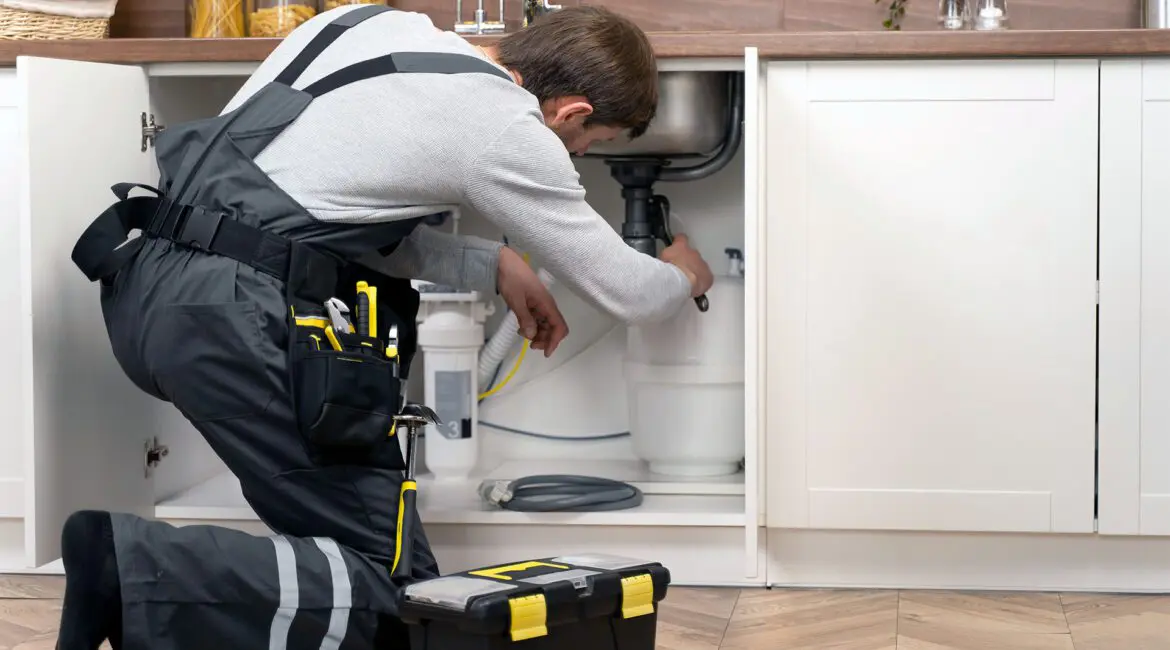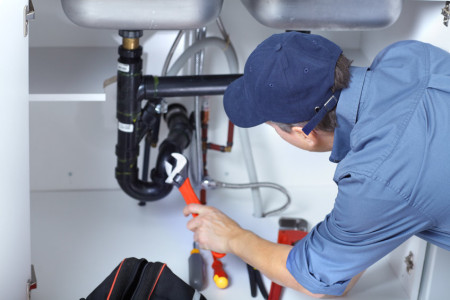Crucial Emergency Plumbing Advice to Apply Until Help Arrives
Crucial Emergency Plumbing Advice to Apply Until Help Arrives
Blog Article
What're your opinions about What to Do While Waiting for an Emergency Plumber?

Plumbing emergencies can strike any time, triggering stress and possible damages to your home. Whether it's a ruptured pipe, a blocked drainpipe, or a dripping faucet, knowing just how to manage the scenario up until an expert plumbing technician arrives can conserve you from additional complications. This short article supplies essential emergency situation pipes suggestions to aid you mitigate damage and reclaim control during a pipes situation.
Turn Off the Water System
The first step in any type of plumbing emergency situation is to shut off the supply of water. For local issues, such as a leaking tap or commode, switch off the shutoff near the component. When it comes to a significant leakage or ruptured pipeline, situate your home's main water shut-off valve and turn it off promptly. Recognizing the location of these valves beforehand can save useful time throughout an emergency.
Turn off Your Hot Water Heater
In particular emergency situations, such as a ruptured pipeline, it's a good idea to turn off your hot water heater. This protects against getting too hot or damages to the unit when water stops streaming. Shut off the power supply to the hot water heater (electrical or gas) and allow it cool to avoid potential risks.
Briefly Stop a Ruptured Pipeline
A ruptured pipeline can bring about substantial water damages in mins. To mitigate the issue:
Call a specialist plumbing professional promptly to attend to the issue permanently.
Have an Emergency Situation Pipes Set
Prepare a standard pipes emergency situation set to deal with minor issues effectively. Your kit needs to consist of:
Having these devices available can make a significant distinction in your capacity to handle emergencies.
Unclog Drains Securely.
A clogged up drainpipe can be an aggravating and messy issue. Below's exactly how to tackle it:.
If these techniques don't function, prevent using extreme force, as it might intensify the clog.
Handle Overflowing Toilets.
An overruning toilet can cause prompt mayhem. Below's what you ought to do:.
Address Little Leakages with Temporary Fixes.
Small leaks can swiftly come to be significant problems if left untreated. Make use of these short-lived solutions up until expert aid gets here:.
While these solutions aren't irreversible, they can aid decrease water loss and damages.
Handle Frozen Pipes Carefully.
In colder climates, frozen pipes are a common emergency. If you suspect a frozen pipeline:.
Know When to Call a Specialist.
While quick fixes can assist briefly, certain plumbing problems need instant expert interest. Call a plumbing professional if:.
Quickly getting in touch with a professional makes certain the problem is fixed correctly and prevents more difficulties.
Stop Additional Damage.
Taking quick activity to decrease damages can save you time and money in the long run. Below's exactly how:.
Conclusion.
Pipes emergencies can be overwhelming, yet with the best knowledge and devices, you can manage the scenario successfully until aid shows up. By turning off the water, dealing with small leakages, and using short-lived fixes, you can decrease damage and maintain your home safe. Keep in mind, these pointers are short-term options; always get in touch with a certified plumbing professional to deal with the origin of the issue. Prep work and quick reasoning are your ideal allies in any type of pipes emergency.
8 Helpful Tips for Managing Plumbing Emergencies at Home
If your plumbing system hasn’t failed once, wait for it because almost everyone has a story to tell. Sometimes, it could be simple emergencies such as a leaking pipe, a blocked cistern, or even a big burst pipe. In situations like this, you need to have some handy tips to save you some money and from possible damages.
Take care of minor issues early.
Sometimes, you could have avoided an emergency by taking proactive measures while it was still early. Some major plumbing emergencies can be a result of an ignored minor issue. We recommend that you have items like plumbing tapes and other related items. A plumbing tape can allow you to manage minor leaks before the plumber arrives.
Cut off the water supply.
This tip is essential in almost any type of leakage problem. For problems like minor leakages in the toilet or kitchen, turn off the supply that takes water to the affected pipes. If the leakage is a major pipe, you must shut off the supply valve to the entire building. This will help you avoid flooding your home and neighbors if you share a flat.
Know your plumbing system
Folks typically move into a new apartment without understanding the water supply around the building. This can prove disastrous if a water emergency arises and the plumber is far away. The previous tip will prove useless if you don’t practice this one. More importantly, know where your water shut-off valve is located – you’ll need that knowledge to prevent potential home floods.
Have some common handy tools
There are lots of plumbing emergencies that you can handle without hiring a plumber. That’s why you must keep some tools available always. Some tools that you can use to fix simple plumbing emergencies easily include plumbing tapes, screwdrivers, thread seal tapes, plungers, pliers, tape measures, and rubber gloves.
Insulate your pipes from cold
You’ll save yourself from many plumbing expenses if you protect your water pipes from the cold. This is because of the harmful effects that cold weather can have on your pipes. During winter, your pipes can burst from being overly expected to freezing temperatures. So, make sure insulators are there to keep the pipes working correctly.
Avoid practices that will clog your toilet.
Many people indulge in practices that can damage the plumbing system of the entire building. One of these is when they use their toilet to dispose-off garbage. They flush all kinds of things, such as paper towels, bandages, hairs, female sanitary products, etc., down the toilet. This will block your toilet in the long run, incurring unnecessary expenditures. Dump such waste in the trash instead.
Check your dials regularly.
Sometimes, there could be leakages in your home without noticing them in time. So, constantly monitor your water meter dial. If the dial is reading when there is nobody using water, this is an indicator that there is leaking. Check for leaks immediately. Call a plumber as soon as possible if you can’t find any.
https://www.constructionplacements.com/8-helpful-tips-for-managing-plumbing-emergencies-at-home/

Do you really like reading about Expert Tips for Managing a Plumbing Emergency Until Help Arrives? Leave feedback down the page. We'd be happy to see your reactions about this piece. In hopes that you visit us again later on. Do you know about somebody who is fascinated about What to Do During a Plumbing Emergency? Be sure promote it. We enjoy your readership.
Click Here Report this page